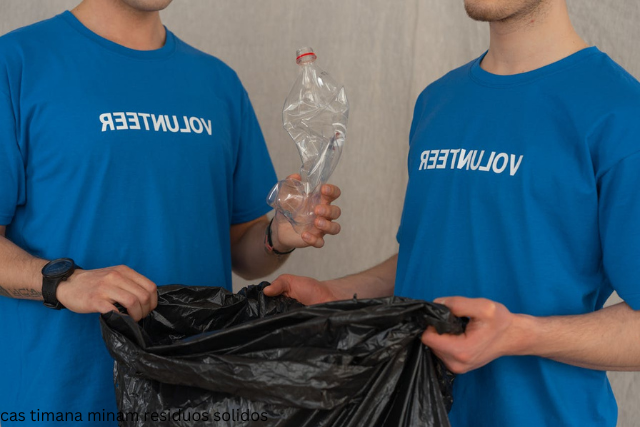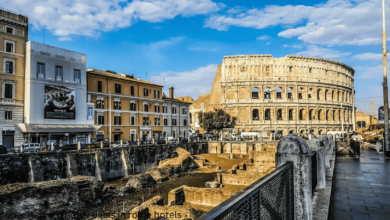Cas Timana Minam Residuos Solidos Guide to Waste Management

In recent years the management of solid waste has been one of the top environmental problems in the world. Organizations governments and communities are searching for sustainable ways to reduce the amount of waste generated recycle materials and dispose of waste in a responsible manner. The “Cas Timana Minam Residuos Solidos” program is an outstanding initiative led by Minam the Ministry of Environment (Minam) in Peru. This article focuses on the goals implementation strategies as well as the long-term impact of this significant waste management initiative and demonstrates how it has contributed to a healthier and cleaner environmental.
Table of contents
- What is “Cas Timana Minam Residuos Solidos”?
- How the Initiative is Implemented
- The Role of Local Communities in Waste Management
- Waste Segregation: The First Step to Effective Recycling
- Technological Innovations in Waste Management
- Impact of “Cas Timana Minam Residuos Solidos”
- The Future of “Cas Timana Minam Residuos Solidos”
- Challenges and Future Outlook
- Conclusion
What is “Cas Timana Minam Residuos Solidos”?
“Cas Timana Minam Residuos Solidos” refers to a series of solid waste management strategies which are led by the Peru’s Ministry of Environment or MINAM. The term itself is a symbol of the nation’s efforts for reducing and recycling and manage responsibly solid waste by implementing a range of awareness campaigns programs as well as community-based activities. These initiatives seek to address the increasing issue of pollution and waste by making a focus on sustainability and protecting the environment.
The primary initiatives’ main areas of focus are waste reduction and recycling as well as managing hazardous waste and educating the public on the correct methods to dispose of waste. Through bringing together government agencies as well as local communities and private companies the project provides a common strategy for managing solid waste that seeks to reduce garbage waste decrease pollution and encourage recycling of resources.
The Importance of Waste Management
Waste management is an essential problem for any country particularly when it comes to increasing population growth and rapid urbanization. Inadequate waste management practices could result in a myriad of environmental problems such as contamination of the water bodies soil erosion in addition to the accumulation of garbage in public areas. In many regions around the globe the absence of adequate disposal facilities has resulted an increase in pollution and the spread of diseases that affect the health of people and local ecosystems.
In Peru like several other nations the issue of managing waste from solid sources is especially urgent. Rapid urbanization and the growing of population has resulted in increasing the amount of waste produced.
Goals of the “Cas Timana Minam Residuos Solidos” Initiative
The primary objectives for the “Cas Timana Minam Residuos Solidos” program are based on sustainability. They include:
- Reduced Waste: One the primary goals in the scheme is to cut down on the total amount of garbage produced in the beginning.
- Recycling and Reuse: A second important goal is to encourage recycling and recycling of material. The program aims to boost recycling rates throughout the country and ensure that items such as glass plastics metals and paper are removed. The landfill and reintroduced into the production process.
- The management of hazardous waste: Waste typically includes hazardous substances including electronics batteries and chemical compounds which could cause harm to health as well as the environment. The initiative aims to create appropriate recycling and disposal systems for these substances.
- The Public Education and Awareness Public Education and Awareness: One of the most essential elements in the programme is education the general public. This initiative offers information on appropriate waste management practices as well as recycling methods and ways to minimize waste in your home. The initiative empowers local communities to take on responsibility for their environmental footprint.
- Social Engagement: The programme concentrates on promoting participation in the community. The environment for sustainability on a local scale.
How the Initiative is Implemented
The “Cas Timana Minam Residuos Solidos” program is executed by combining regional national and local efforts. Its Ministry of Environment (Minam) collaborates in conjunction with municipalities and environmental groups and business organizations to implement these strategies into practice.
- Infrastructure Development The first steps is establishing the infrastructure for recycling collection of waste and disposal. This includes putting up recycling bins for both urban and rural regions and setting up waste treatment facilities and recycling centers.
- Regulation and Policy Government has introduced diverse policies to help ensure efficient waste management. This includes rules on recycling incentives segregation of waste and sanctions for infractions to the rules of waste disposal.
- Public Awareness Programs In order to change the behavior of people MINAM runs campaigns that inform citizens about the necessity of reducing waste as well as recycling. The campaigns employ a variety of media such as radio television as well as social media to communicate the message. Community and school groups are also active in the promotion of waste reduction practices.
- This includes providing incentives for companies to reduce their waste improve recycling efforts and use more sustainable packaging.
- Waste Audits and Monitoring The program monitors regularly waste management practices in order to assess the progress made and pinpoint the areas for improvement.
The Role of Local Communities in Waste Management
Local communities play a crucial contribution to making the “Cas Timana Minam Residuos Solidos” initiative. Through active participation in recycling waste segregation programs and local cleanup efforts communities are contributing to the decrease of waste and preservation of their environment. Communities schools and businesses work together to inform the public about sustainable practices for managing waste and encourage everyone to consider their impact on the environment. This collaborative effort helps strengthen the cause and creates an environment of sustainability.
Waste Segregation: The First Step to Effective Recycling
Waste segregation is an important component in the “Cas Timana Minam Residuos Solidos” program. It is the process of separating recycles and general trash in the place of production at home business offices or public areas. The campaign encourages the use of clearly-marked recycling bins for different kinds of waste like paper glass plastic and even metals to facilitate it for people to be involved. Separation of recyclables is essential for improving effectiveness of recyclers as well as reduces the risk of contamination for recyclable materials. The waste segregation is made an everyday practice communities will be able to significantly improve recycling rates and lower the amount of waste that is sent to landfills.
Government Policies Supporting Sustainable Waste Management
The Peruvian government has implemented a variety of policies to help achieve the objectives in the “Cas Timana Minam Residuos Solidos” initiative. These policies include laws which require municipalities to create recycling programs set goals for recycling and impose sanctions for illegal dumps. In addition the government rewards businesses to adopt environmentally sustainable practices including recycling packaging and reducing waste production. These policies establish a system for actions that hold people and companies accountable and encourages innovation in ways to manage waste.
Technological Innovations in Waste Management
Innovations in technology play a major part in the successful implementation that is this “Cas Timana Minam Residuos Solidos” initiative. The program makes use of new technology to enhance the waste collection sorting recycle processes. These tools help to reduce costs for labor limit errors made by humans as well as boost the effectiveness in recycling initiatives. As the technology continues to advance they are expected to improve waste management to make it more efficient and environmentally sustainable.
Impact of “Cas Timana Minam Residuos Solidos”
- Environment Impact main effect of this program has been its impact on the environment. Through reducing the volume of garbage that is disposed in landfills and encouraging recycling The program has reduced pollution and also conserve natural resources. It has had a positive impact on the quality of air and water bodies as well as local ecosystems. All of which benefit from less pollution and waste.
- Economic Impact Also the program has produced positive effects on economic activity in the area. Recycling for instance has resulted in new jobs in the areas of waste collection sorting processing and sorting. In addition the promotion of sustainable practices has pushed companies to think outside the box and discover ways to minimize their environmental footprint which can lead to long-term benefits for the economy.
- Social Impact: One of the most prominent social impact has been the increased public awareness. People are more involved in waste management and recycling programs and becoming more aware of environmental issues local to them. Through educating the public this program has engendered an understanding of responsibility and environmental conservation.
- Recycling and waste reduction rates Through the program’s initiatives to educate and improve infrastructure There has been an rise on recycling levels. A lot of communities are becoming more vigilant in separating recyclable waste from regular trash that has led to reductions from the quantity of garbage that ends up in landfills.
Overcoming Challenges in Rural Areas
While this “Cas Timana Minam Residuos Solidos” initiative has had success in cities however it is not without its problems in rural regions. A lot of rural communities do not have the infrastructure needed for efficient recycling and collection of waste. To address these issues the program is focused on local solutions that are specifically tailored to the particular needs of each community. It could include establishing small-scale composting facilities setting up mobile recycling facilities and providing local leaders with training to inform others on waste management practices. Through the development of capacities in rural areas this initiative hopes to bring the advantages from sustainable management of waste to the entire regions of Peru.
The Economic Benefits of Sustainable Waste Management
The sustainable management of waste can provide substantial economic advantages. Its “Cas Timana Minam Residuos Solidos” initiative assists in creating job opportunities within the recycled industry including collecting sorting and processing. As the demand for recycled materials increases and new industries develop that boost economic development while helping local economies. Businesses that cut down on their waste production or adopt circular economies practices typically see savings in costs through reducing the cost of materials and disposal charges. The sustainable waste management practices do are not just good for the environment but also aid in sustainable economic growth through encouraging the development of new ideas and creating job opportunities.
Educating the Public The Key to Lasting Change
The goal of educating the public is the main goal in the “Cas Timana Minam Residuos Solidos” program. The program invests heavily in outreach efforts that aim to create awareness of the importance of recycling and reducing waste. Through media campaigns workshops and school programmes the initiative informs individuals on how to reduce their environmental footprints through small regular modifications. If people are aware of the effects they make on their environment and the environment they tend to make sustainable choices. In time this shift in attitude will result in lasting modifications in behaviour that lead to a reduction in production of waste and increased recycling rates.
The Future of “Cas Timana Minam Residuos Solidos”
In the future in the future looking ahead the “Cas Timana Minam Residuos Solidos” initiative is aiming to extend its impact and reach. Through ongoing investments into waste infrastructure and technologies in addition to education and training the initiative is well-positioned to tackle new challenges related to recycling and reducing waste. One of the objectives for in the near future will be to boost recycling rates throughout the nation and make Peru an industry leading country in the field of sustainable waste management in Latin America. As the program grows it will continue to involve more stakeholders–government agencies businesses NGOs and the public–working together toward a more sustainable future.
International Collaboration for Waste Management
“Cas Timana Minam Residuos Solidos” program “Cas Timana Minam Residuos Solidos” program is not operating in an isolated manner. Peru is a part of a global effort to address environmental and waste management issues. Through collaboration in international organisations other countries and international network of environmental organizations Peru has access to the best practices funds and knowledge. These partnerships also allow for sharing information and technology that can improve the efficiency of Peru’s waste strategies for managing waste. Global collaboration is crucial to combating environmental pollution and degradation. Peru’s involvement in these initiatives helps to increase the momentum of the world towards sustainable development.
Additional headings or paragraphs could help to further explore the complexities into the “Cas Timana Minam Residuos Solidos” initiative which focuses on different aspects of the initiative and how it intends to improve the management of waste throughout Peru in addition to other countries.
Challenges and Future Outlook
Despite its successes the program is facing a number of issues. One of the major challenges is the need to ensure uniformity in all locations especially rural areas where the infrastructure for waste management could be lacking. In addition changing deeply-rooted consumption habits around reducing waste is a long-term objective.
Future plans for “Cas Timana Minam Residuos Solidos” is likely to include the most advanced technology for recycling waste more participation from the community as well as stronger public-private partnership. In the future by building on the achievements of the past several years Peru is likely to increase its recycling rates and dramatically reduce its environmental footprint.
Conclusion
“Castimanaminam” or “Cas Timana Minam Residuos Solidos” initiative is an important step towards sustainable waste management in Peru. Through a mix of policy and infrastructure development as well as public education and involvement of the community this program has helped in reducing waste production encourage recycling and help protect the environment. Although there are challenges but the long-term effects of these initiatives are crucial for the creation of more sustainable eco-friendly in a sustainable more resilient and healthy the future for Peru and the world beyond.
In focusing on sustainable waste management this program does more than just improve local communities but it is also assisting global efforts to combat pollution and preserve our planet for the next generation.





